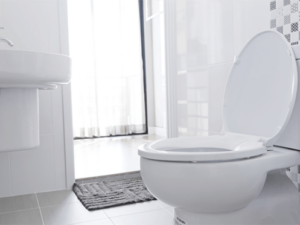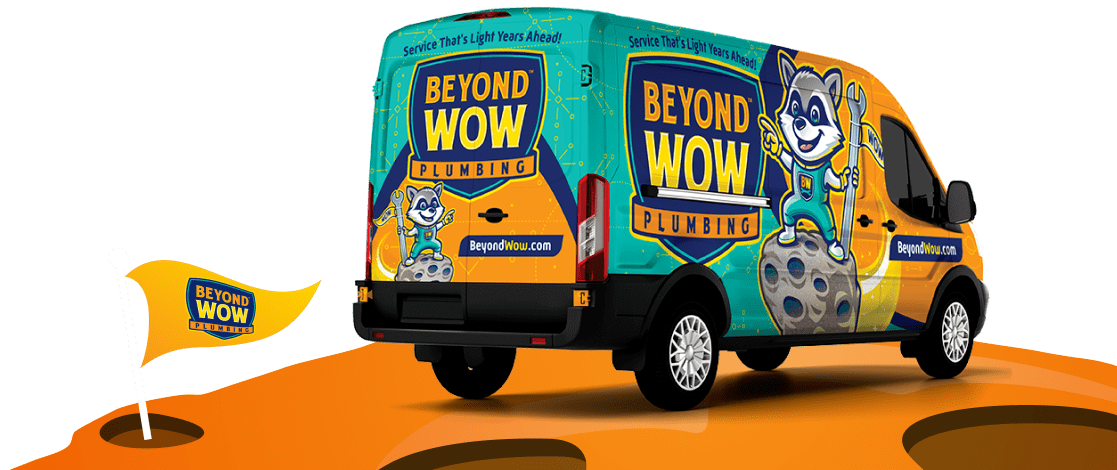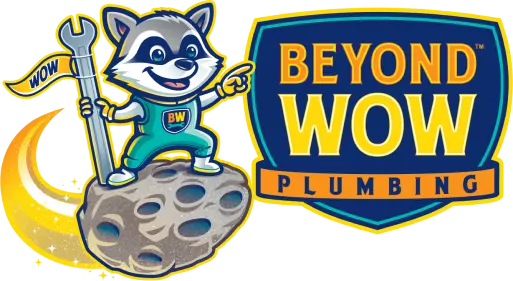
Wet Wipes (Why Flushing Regular Wipes Will Clog Your Drains)
Can Baby Wipes Be Flushed Down the Toilet?

This can spell really bad news for your plumbing system, which can cost thousands of dollars in repairs. Willing to take the risk? Just think of how much money this issue is already costing taxpayers and you may want to reconsider.
To avoid any preventable problems with your sewer system, it’s important to refrain from disposing of these items down the toilet. It’s also essential to perform regular maintenance. A simple drain cleaning is an easy solution to help prevent costly problems.
Here’s an explanation of why you should never flush anything down the toilet that isn’t number one, number two, or toilet paper.
Wipes Can Get Caught on a Snag or Bend in the Pipe
The pipes that connect your toilet to either the septic tank or the city sewage system aren’t straight. They may turn several times before making a connection. These bends, where the pipe may become smaller, are prime places for debris to lodge.
Some of the most often flushed items are:
- Baby wipes
- Sanitary napkins
- Paper towels
- Facial tissue
- Tampons
- “Flushable” wet wipes
Just remember: Your toilet is not a garbage can. Anything that isn’t waste or toilet paper does not belong in your toilet.
Wipes Can Clump Together & Cause a Blockage
Myth: Wipes can be flushed, as long as you flush them one at a time.
Fact: Even one wipe can cause a blockage. Wipes and other debris can clump together to create a large ball. This ball has the potential to become lodged somewhere in the pipes. Depending on the severity and location of the blockage, you may need a professional drain cleaning.
These blockages also happen in sanitation plants. Companies clean out and haul away thousands of pounds of wipes and debris.
If a blockage is bad enough, it may cause equipment to break, which means their equipment will need replacement or repair. This results in hours of downtime and thousands of dollars in taxpayer expenses.
Baby Wipes Don’t Break Down Like Toilet Paper Does
Myth: Wipes are just like toilet paper. They both serve the same purpose, don’t they?
Fact: Designed to dissolve in water, toilet paper breaks apart when submerged. All toilet paper passes strict standards dictating how quickly they need to break apart in water. Regular wipes and other hygiene products mentioned above aren’t subject to these standards.
Regular wipes are more fibrous and take a longer time to break apart, if they break apart at all. The material is more cloth-like and durable.
Being more durable makes them great for cleaning and other jobs. Yet, because of their durability, they cause problems in septic and waste removal systems. They may even cause problems in the toilet. Toilet repair or replacement may be required.
Wet Wipes Will Jam Pumps, Vents & Filters
Myth: Wipes move through the sewage system without any problems. The package does say “flushable” on it.
Fact: Equipment and ventilation pipes are likely to jam or become blocked by these wipes. Even “flushable” wipes can do this. This term was first used in the manufacturing industry for disposable wipes. It wasn’t tested by plumbers and sanitation experts for flushability.
Some of these wipes may break apart over time. However, they typically don’t break up enough before reaching the sanitation facility, causing them to become stuck or clumped together with other debris. Workers then need to go in and clear the blockage.
These types of repairs have cost cities like New York City upward of $18 million a year. Is that really where you want your tax dollars to go?
Older Pipes May Have Roots or Material Build Up in Them
Tree roots and flushed debris are particularly problematic for older sewage systems. These older systems are more fragile because of their age. Older plumbing systems and pipes may have cracked, meaning roots can grow into them.
The roots become snags that non-flushable materials can get caught on. When this happens, it reduces the amount of space other materials have to flow past it. This slows the flow and increases the potential for clogs and material buildup.
Frequent clogs and slow drainage may indicate this narrowing. It’s likely that each time you unclog it yourself, you’re pushing a small hole through the sludge. Just enough to get things moving again. Once that hole fills in again, you’ll have another clog. If you find yourself in this predicament, it may be time to call a professional.
Time To Call a Professional? Beyond Wow Can Help
Beyond Wow can help you find out what exactly is causing your plumbing problems. We have the proper equipment to help prevent damage to your fixtures and pipes. When it comes to plumbing, a DIY project isn’t always best, especially if the problem has been happening for a long time.
If the problem is big, like roots, one of our certified and insured plumbers can recommend and implement long-term solutions, such as hydro jetting. If it’s small, we can fix the problem with minimal downtime. If you’re having problems with your plumbing system, it’s time to contact a professional.
Contact Beyond Wow today to schedule clog removal services in your Austin, TX, home.
Ready for Out-of-This-World Plumbing Service?





